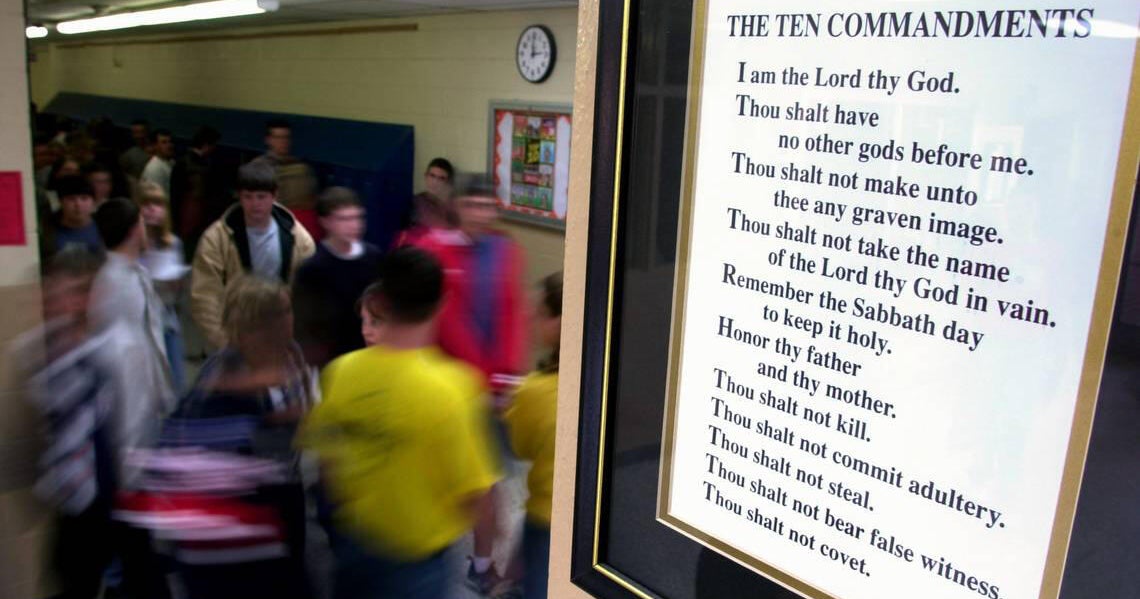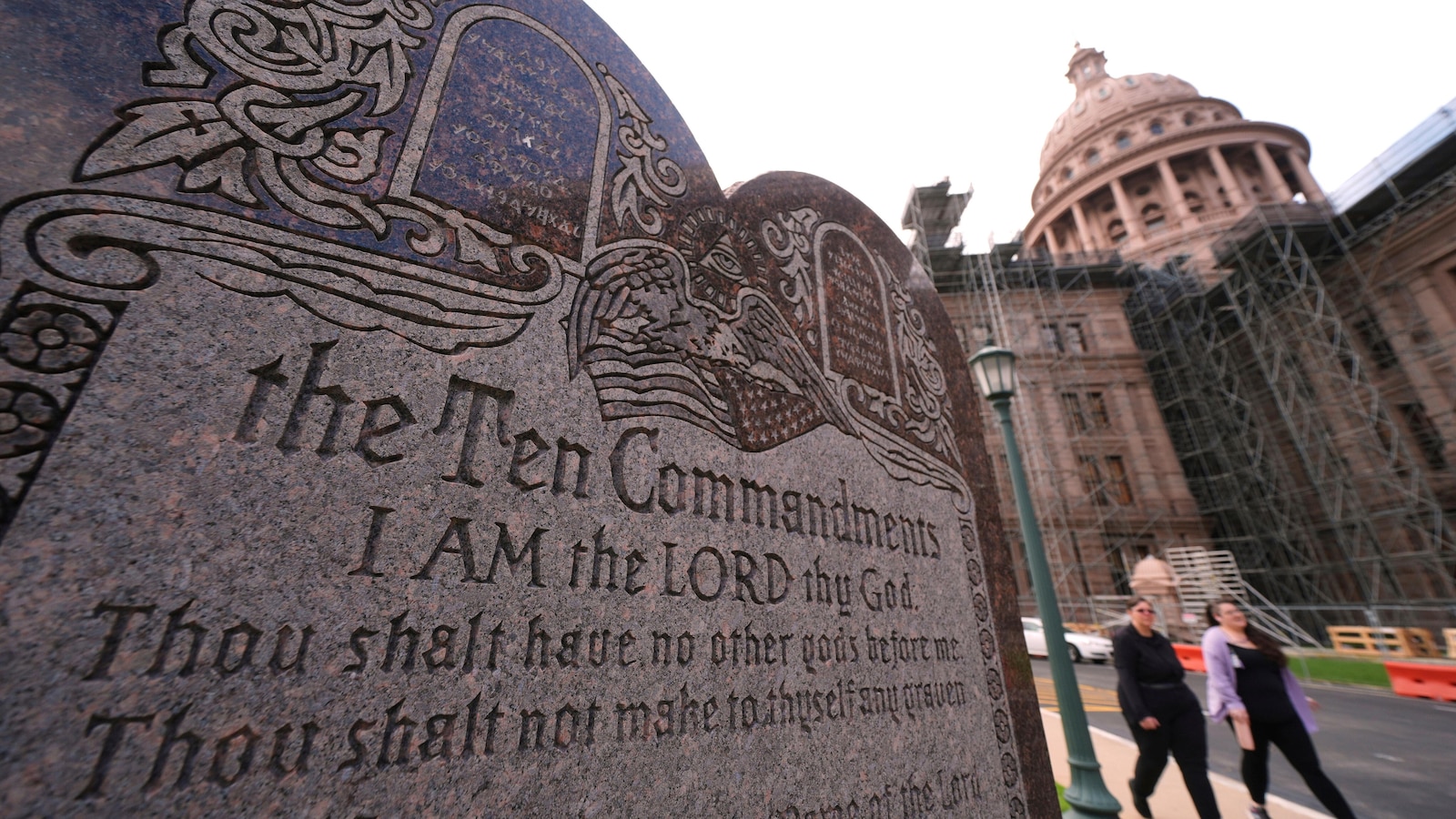Federal Judges Block Texas Law Mandating Ten Commandments in Public Schools
Federal judges temporarily blocked a Texas law requiring Ten Commandments display in public school classrooms. Diverse families and faith leaders sued, citing First Amendment violations of church-state separation and religious freedom.
Subscribe to unlock this story
We really don't like cutting you off, but you've reached your monthly limit. At just $5/month, subscriptions are how we keep this project going. Start your free 7-day trial today!
Get StartedHave an account? Sign in
Overview
- Federal judges temporarily blocked a new Texas law mandating the display of the Ten Commandments in every public school classroom, issuing a temporary injunction.
- The legal challenge was brought by a diverse coalition of Dallas-area families, faith leaders, and school districts, seeking to prevent the law's enforcement.
- Plaintiffs argue the Texas law violates the First Amendment, specifically protections for church-state separation and the right to free religious exercise, challenging its constitutionality.
- Lawsuits are pending in federal court against the Texas Education Agency, Commissioner Mike Morath, and Dallas-area school districts regarding the law's implementation.
- The challenging group includes individuals from Christian, Jewish, Hindu, Unitarian Universalist, and nonreligious backgrounds, all with children in Texas public schools.
Report issue

Read both sides in 5 minutes each day
Analysis
Center-leaning sources cover this story neutrally by presenting the legal facts of the ruling and including perspectives from both sides of the debate. They avoid loaded language in their own voice, attribute evaluative statements, and focus on the procedural aspects of the court case, providing context without editorializing.
Articles (4)
Center (3)
FAQ
The legal challenge asserts that the Texas law violates the First Amendment's Establishment Clause by mandating a religious display in public school classrooms, infringing on church-state separation and religious freedom.
The plaintiffs are a diverse coalition of families, faith leaders, and school districts from various religious and nonreligious backgrounds, concerned that the law infringes on constitutional protections and parental rights by imposing a religious text in public classrooms.
Stone v. Graham ruled that requiring the display of the Ten Commandments in public school classrooms violated the Establishment Clause, serving as foundational precedent cited by challengers against such laws.
The Supreme Court's 2022 decision in Kennedy v. Bremerton School District overturned the Lemon test and introduced a historical tradition approach, which alters how courts might assess such religious displays compared to earlier cases like Stone v. Graham.
Federal judges have issued a temporary injunction blocking enforcement of the Texas law mandating Ten Commandments displays in public school classrooms while lawsuits proceed against the Texas Education Agency and district officials.
History
- This story does not have any previous versions.



